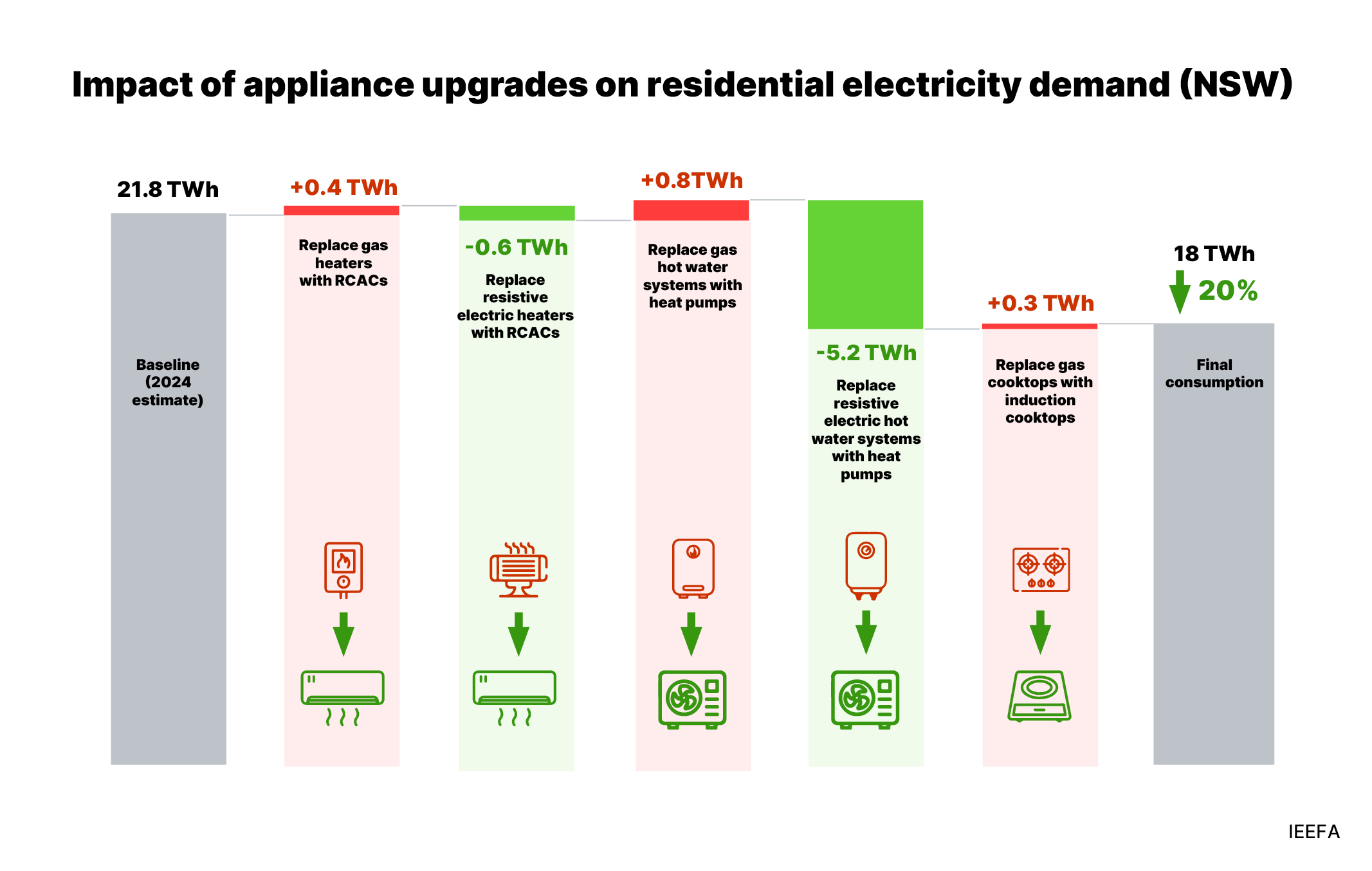Eight ways NSW could cut energy bills during the cost-of-living crisis, and beyond
Download Briefing Note
View Press Release

Key Findings
High energy costs are a key factor impacting the cost of living in New South Wales, but deploying a range of sensible measures could deliver lasting energy bill savings.
Transitioning households to efficient electric appliances can reduce costs for consumers, while improving energy security. The savings would be maximised if coupled with thermal efficiency upgrades, greater deployment of consumer energy resources, and by unlocking the potential of flexible demand.
Electricity network costs could be reduced via better utilisation of networks, and by curtailing the supernormal profits made by the networks.
To protect consumers from stranded asset risks, further growth of the gas distribution network should be halted, and a plan urgently developed to manage the phase-down of the existing network.
The cost-of-living crisis is being felt all across Australia, but in New South Wales (NSW), energy costs are having a disproportionately large impact. According to research by the Justice and Equity Centre, increasing numbers of households are struggling to pay energy bills, with many at risk of disconnection. A recent Australian Competition and Consumer Commission (ACCC) inquiry observed that NSW was the only jurisdiction with a competitive retail electricity market where third-quarter (and annualised) bills have consistently increased over the last five years.

Source: ACCC Inquiry into the National Electricity Market. Residential electricity consumption is highest in the third quarter of the year.
Several governments in Australia have moved to provide consumers with one-off energy rebates. However, these provide only temporary relief. A wider range of options, including household energy upgrades, could be deployed to deliver ongoing, long-term energy bill reductions.
Energy consumers in NSW have shown they are ready and motivated to take advantage of household energy upgrades. In 2023, NSW broke Australian records for heat pump hot water system sales, seeing a 335% increase in sales in one year on a per-dwelling basis.
















